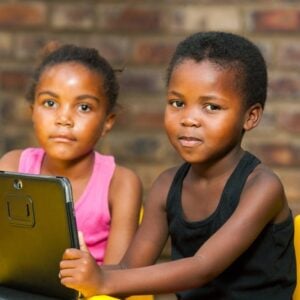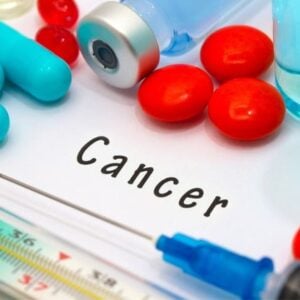In Kinshasa, secondary school girls joined government officials in a walk against cervical cancer, chanting “No to Cervical Cancer!” along Boulevard du 30 juin. Some participants were winners of a flyer contest supported by the Gates Foundation, receiving tuition prizes. Their biggest concern was where they could access the human papillomavirus (HPV) vaccine, which plays a crucial role in preventing cervical cancer later in life.
The Democratic Republic of Congo (DRC) has taken important steps to respond. In November 2024, the country hosted the National Forum for the Elimination of Cervical Cancer, which resulted in a revised national strategy for 2024–2029, endorsed by the WHO Africa Regional Office and the Ministry of Health. A key part of the plan is rolling out the HPV vaccine for girls aged 9 to 14, supported by the World Bank’s Health Emergency Preparedness Response and Resilience Project, which will also introduce screening in several provinces including Tshopo, Haut-Katanga, Kwilu, Kongo Central, and Kinshasa.
The urgency of these efforts is clear. Every year, around 7,700 women in the DRC are diagnosed with cervical cancer, and over 70 percent of them die, largely due to gaps in screening and treatment. To address this, starting in 2026, the government will provide the quadrivalent Gardasil® vaccine for girls aged 9 to 14. A single dose protects against four HPV strains responsible for about 70 percent of cervical cancer cases. Survivors continue to stress the importance of awareness, screening, and prevention, urging authorities to expand access to care and encouraging women to remain hopeful and seek support.
The Gates Foundation has provided catalytic funding to support vaccine introduction through policy dialogue and multisectoral coordination. Meetings have engaged ministries responsible for health, education, gender, and youth to build a roadmap for vaccination, screening, and treatment. Additionally, the World Bank, WHO, and University of Lubumbashi conducted a Knowledge, Attitude, and Practice (KAP) study to assess perceptions of HPV vaccination in Kinshasa and Haut-Katanga. Findings revealed that many girls and parents did not feel an urgent need for vaccination, citing limited awareness, accessibility issues, and poor organization in health facilities. Notably, less than 10 percent of respondents had ever undergone cervical cancer screening.
Despite these challenges, communities expressed openness to vaccination when informed of its benefits, with some acknowledging that immunization is the best way to protect children. Addressing hesitancy and expanding awareness will be essential as the DRC scales up vaccination and screening efforts.
Meanwhile, other African countries are providing models of success. In Zanzibar, the HPV Plus Model has transformed adolescent health delivery by embedding vaccination within a broader package of services including sexual and reproductive health education, nutrition, and eye care. Within a year of its rollout, HPV vaccine coverage increased dramatically from 14 percent in 2023 to 85 percent in 2024, thanks to school outreach and community engagement. This integrated approach highlights a promising blueprint for increasing HPV vaccination rates and improving adolescent health across Africa.







